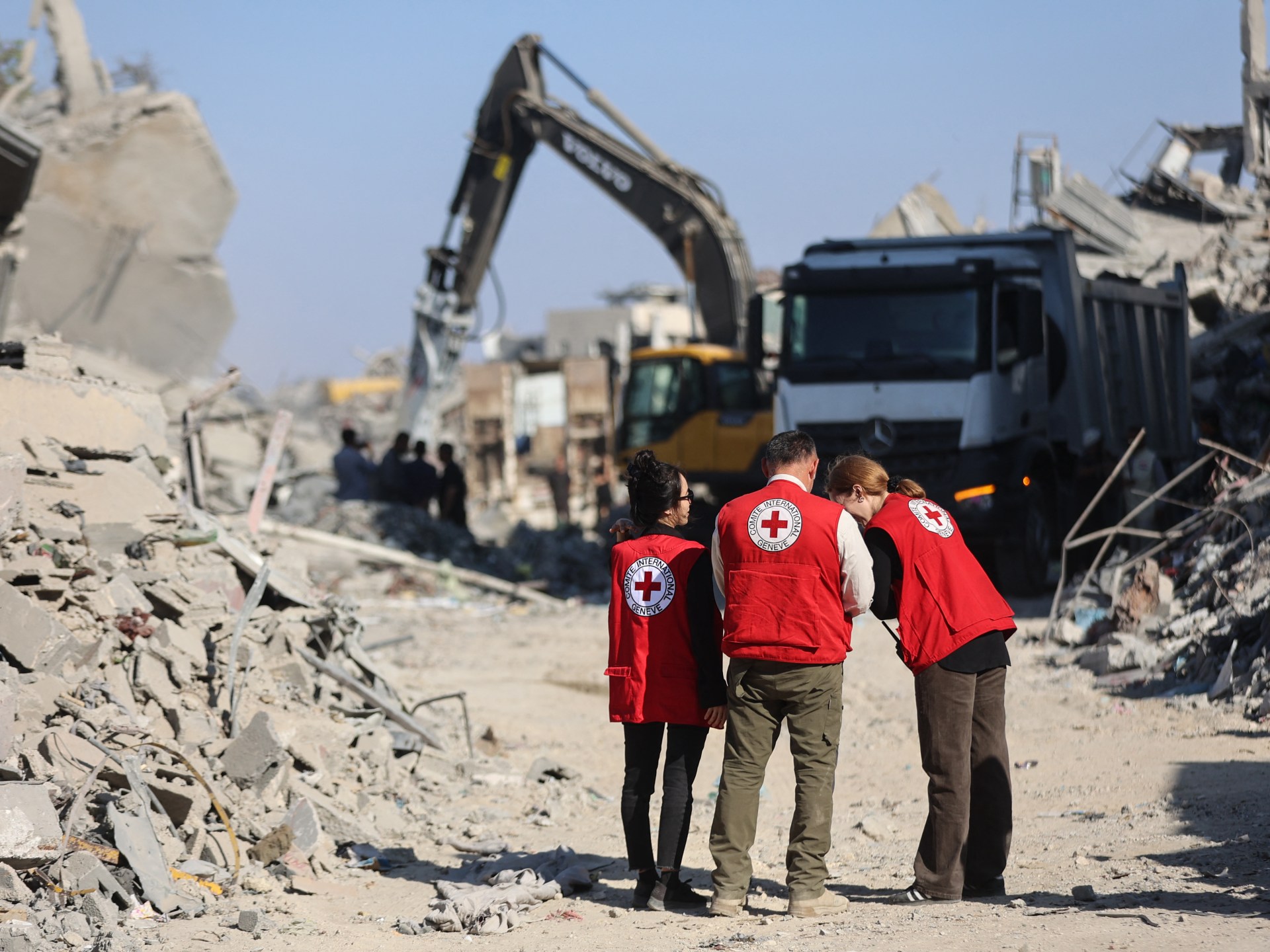Useful information
Prime News delivers timely, accurate news and insights on global events, politics, business, and technology
Useful information
Prime News delivers timely, accurate news and insights on global events, politics, business, and technology

Hamas handed over the remains of another dead captive to Israel, hours after an Israeli drone strike in southern Gaza killed two Palestinians amid a fragile ceasefire.
The Israeli military said on Monday that the Red Cross had taken custody of the coffin and was in the process of transporting it to army troops in Gaza.
list of 3 itemsend of list
Under the terms of a US-brokered ceasefire that went into effect on October 10, Hamas has agreed to return the bodies of the 28 deceased captives. The remains of 16 people had been delivered as of Monday.
The 20 surviving captives were freed on October 13 as part of the truce.
The release of the last body comes as families of some of the captives called on the Israeli government to suspend the ceasefire if Hamas fails to locate and hand over the bodies.
“Hamas knows exactly where each of the deceased hostages is being held,” the Hostages and Missing Families Forum said.
“The families urge the Israeli government, the US administration and the mediators not to advance to the next phase of the agreement until Hamas fulfills all its obligations and returns all hostages to Israel,” the association added.
The statement echoed the Israeli government’s claim that Hamas knows where the remains are.
On Saturday, Hamas negotiator Khalil al-Hayya said there were “challenges” in locating the bodies of the captives because “the occupation has altered the terrain of Gaza.”
He suggested that some of those who had buried the bodies had been killed during the war, while others had forgotten the burial sites.
The day after al-Hayya’s comments, Israel allowed an Egyptian technical team to enter Gaza to help with the task of finding the bodies. The search involves the use of excavators and trucks.
Despite the ceasefire, an Israeli drone strike near the southern Gaza town of Khan Younis killed at least two people on Monday, according to Nasser Hospital.
In total, eight Palestinians have been killed and 13 others wounded in Israeli strikes across the enclave over the past 48 hours, Gaza’s Health Ministry said on Monday. At least 68,527 people have been killed and 170,395 injured since Israel’s war against Gaza began in October 2023, it added.
Speaking aboard Air Force One on Monday, US Secretary of State Marco Rubio suggested that Israel had not violated the truce with its attack on a member of the Palestinian Islamic Jihad group on Saturday.
“We don’t see that as a violation of the ceasefire,” he said, accusing the target of planning an attack on Israeli troops. “They have the right if there is an imminent threat to Israel, and all the mediators agree with that.”
In the more than two weeks since the truce began, around 473,000 people have returned to northern Gaza, where they face widespread destruction of property and critical shortages of basic needs such as food and water, according to the United Nations.
Younis al-Khatib, director of the Palestinian Red Crescent, has warned that the people of Gaza still face the same desperate humanitarian emergency as before the truce.
“Rebuilding human beings is more difficult than rebuilding destroyed houses,” he said during meetings with Norway’s prime minister and foreign minister in Oslo, noting that residents would need mental health care for years to come.
The World Health Organization also warned that the number of Palestinians in Gaza needing mental health support had risen from about 485,000 to more than one million after two years of Israel’s war.
Almost all children in the enclave need that help, according to the U.N. children’s agency, UNICEF, which has said Gaza has been “the most dangerous place in the world to be a child” for the past two years.
Tess Ingram, a spokesperson for the group in Gaza, explained that this is due to the “large number of children who have been killed and injured, displaced, separated from their families (or) who have lost a loved one.”
“A class of children were killed every day for two years in this conflict, and the scars of what children have endured will last for many, many years to come,” Ingram told Al Jazeera, speaking from the al-Mawasi area in the south.